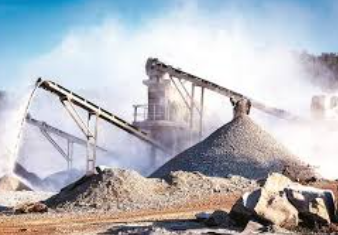Rajasthan Launches M-Sand 2024 Policy
Rajasthan has revealed the M-Sand 2024 policy to enhance the manufactured sand industry and address the growing demand for sand in construction while promoting sustainability. The state currently requires approximately 70 million tonnes of river sand annually, yet local M-sand production stands at only 13 million tonnes. The policy aims to close this gap and support local economies.
Goals of the M-Sand Policy
The primary aim is to increase M-sand production to 30 million tonnes by 2028-29. The policy seeks to reduce reliance on natural river sand, thereby protecting local ecosystems. Sustainable mining practices will be encouraged, utilizing existing overburden and recycling materials.
Economic Incentives for M-Sand Units
The M-Sand policy includes various incentives to support manufacturers. At least 25% of M-sand produced will be allocated for state-funded construction projects, increasing to 50% by 2028-29. The government offers exemptions on stamp duty and a full waiver of electricity duty for the first seven years of operation.
To facilitate growth, the policy provides financial assistance to small and medium enterprises. The government will cover 50% of fundraising costs for manufacturers, with a cap of ₹5 lakh as one-time support. This initiative aims to strengthen local businesses and create job opportunities.
Environmental Benefits
The M-Sand policy prioritises environmental sustainability. By reducing the extraction of natural sand, the initiative aims to protect river ecosystems. The focus on recycling and utilising demolition waste contributes to a more sustainable construction industry.
The establishment of M-sand manufacturing units is expected to generate local employment. By boosting the M-sand industry, the policy aims to enhance economic growth in Rajasthan. This initiative will benefit local communities and promote sustainable development practices.
GKToday Notes:
- M-Sand: M-sand stands for manufactured sand. It is produced by crushing rocks, offering an alternative to natural river sand. This process supports sustainable construction and protects ecosystems.
- Overburden: Overburden refers to the material that lies above a mineral deposit. In sustainable mining, existing overburden is utilised, reducing environmental impact and promoting efficient resource use in construction.
- Stamp Duty Exemption: Stamp duty exemption encourages investment by reducing costs for manufacturers. This incentive allows M-sand units to allocate more resources towards production and sustainable practices in Rajasthan.
Month: Current Affairs - December, 2024
Category: Environment Current Affairs






